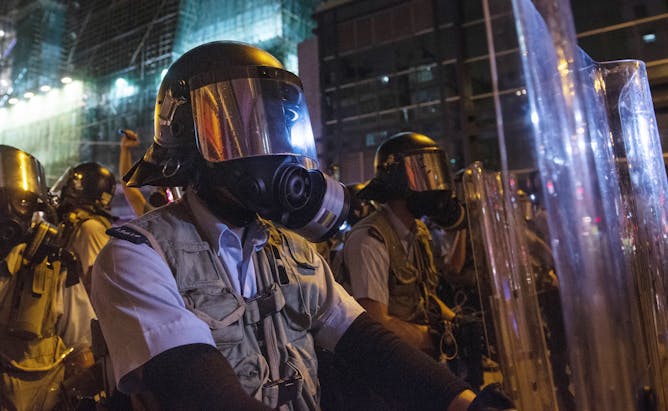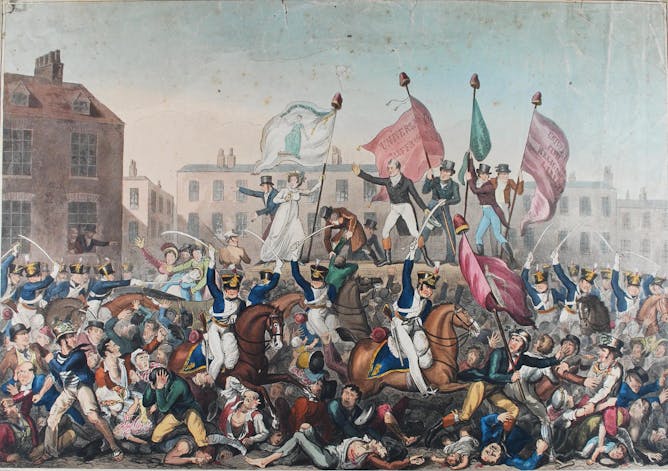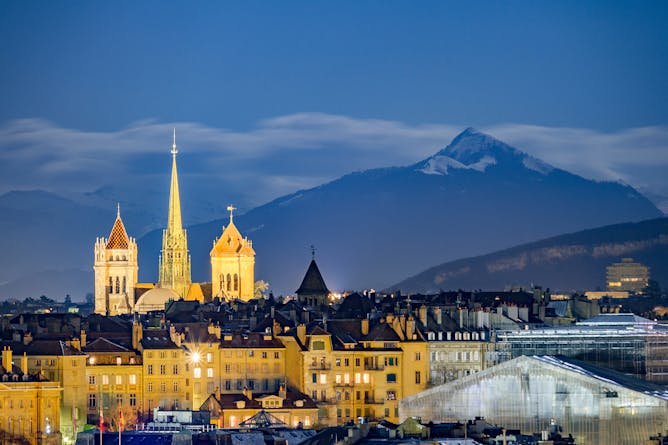|
|
|
Editor's note
|
|
As Hong Kong prepares for another round of protests this weekend, the Chinese paramilitary build up just across the bridge in Shenzhen has raised alarm bells around the world. Photos show tanks lined up in the city’s sports stadium, with reports of police performing crowd-control exercises. The burning question: what is Beijing going to do now?
In a piece commissioned by my colleague Justin Bergman in Melbourne, security researcher Adam Ni at Macquarie University predicts that things are going to come to a head very soon.
He explains the different parts of Beijing’s multi-pronged strategy in response to the Hong Kong protests, trigged by opposition to an extradition law. Beijing has backed the embattled government of Hong Kong chief executive Carrie Lam, asserted influence on pro-establishment business people and stepped up its propaganda and misinformation war.
Now Beijing’s military posturing is a message of deterrence for protestors, even if we are not yet at the point of imminent military intervention, Ni writes. But Hong Kong is a long-term matter and while Beijing’s goal is to gradually tighten its grip on Hong Kong, it may have already lost the city for good.
Elsewhere on The Conversation, read some history lessons for Beijing from a British colonial era uprising and why the militancy of the protestors has unnerved the Chinese government.
This is a rapidly developing story and we’ll bring you analysis and explanations of events in Hong Kong from across The Conversation’s global network as they happen.
|
Gemma Ware
Society Editor
|

|
|
Top stories
|

Beijing has a long-term Hong Kong challenge on its hands, one that in many ways is of its own making.
Miguel Candela/EPA
Adam Ni, Macquarie University
The Chinese government has a multi-pronged approach to quell the protests –building support among business elites, putting pressure on companies and ramping up its misinformation campaigns.
|

Print of the Peterloo Massacre published by Richard Carlile in 1819.
Flickr/ManchesterArchives
Robert Poole, University of Central Lancashire
As well as an attack on the working classes, Peterloo was also an episode of violence against women.
|

The IPCC is based in Geneva, Switzerland.
Boxun Liu / shutterstock
Pete Smith, University of Aberdeen
Every word of the 40-page summary document has to be agreed by representatives of 195 governments.
|
Politics + Society
|
-
Aldo Zammit Borda, Anglia Ruskin University
Daphne Caruana Galizia was investigating several corruption scandals when she was murdered in 2017. The government continues to avoid serious investigations into the allegations.
-
Monika Schmid, University of Essex
As calls are made to ban swearing at work, in public and even at home, a linguist comes out fighting for harsh language.
|
|
Environment + Energy
|
-
Richard Davies, Newcastle University; Fred Worrall, Durham University
The majority of fugitive methane emissions come from a minority of locations and activities – so-called super-emitters.
-
Diogo Veríssimo, University of Oxford
The 'Nemo effect' wasn't real, and new research also found no evidence Dory led to increased imports of wild blue tang fish.
|
|
Science + Technology
|
-
Mark Greenwood, University of Cambridge; James Locke, University of Cambridge
Plant cells signal between each other in order to agree what time it is.
-
Ian Whittaker, Nottingham Trent University
An equation from the 1890s can help us work out how high Hughes can actually reach with his homemade rocket.
|
|
Business + Economy
|
-
Winnie King, University of Bristol
The US and China have an interdependent economic relationship. If this unravels it will have global ramifications.
|
|
Arts + Culture
|
-
Daniel Whistler, Royal Holloway
The battle between nationalism and a wider European identity in the 19th century has influenced philosophy to this day.
|
|
Health + Medicine
|
-
Ian Hamilton, University of York; Alex Stevens, University of Kent
There are proven ways to reduce drug deaths in the UK. But the government is ignoring them.
|
|
Cities
|
-
Beth Perry, University of Sheffield; Rike Sitas, University of Cape Town
From Cape Town to Kisumu and Greater Manchester, cities around the world are seeing the benefits of festivals that celebrate traditions and people.
|
|
| |
Featured events
|

|
Institute of Mental Health, University of Nottingham Innovation Park, , Nottingham, Nottingham, NG7 2TU, United Kingdom of Great Britain and Northern Ireland — University of Nottingham
|

|
34 Broad Street, Oxford, Oxfordshire, OX1 3BD, United Kingdom of Great Britain and Northern Ireland — University of Oxford
|

|
Berrill Lecture Theatre The Open University Walton Hall, Milton Keynes, Buckinghamshire, MK7 6AA, United Kingdom of Great Britain and Northern Ireland — The Open University
|

|
Here East, Queen Elizabeth Park, London, London, City of, E15 2GW, United Kingdom of Great Britain and Northern Ireland — UCL
|
|
|
|
| |
| |
| |
| |
| |
|
|
|
|
|
|
|